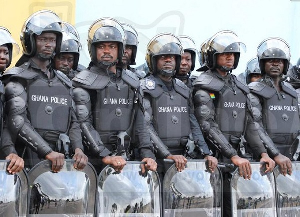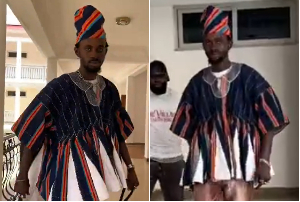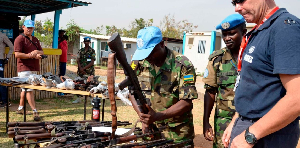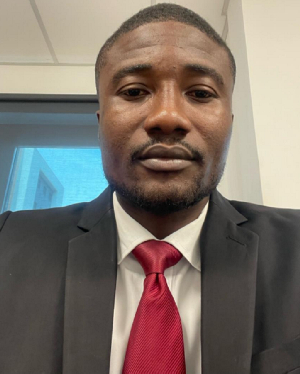President John Agyekum Kufuor has called on the Economic Community of West African States (ECOWAS) to endeavour to build a positive image of the Sub-Region as capable of providing the rest of the world with the best quality goods and on time.
He said the phenomenal lack of confidence in Africa to deliver on time must be a thing of the past, adding, "whatever we produce cocoa, cement, petroleum products, furniture, processed goods or handicrafts, the reputation must be one of quality and reliability".
President Kufuor, who is also the Chairman of ECOWAS made the call when opening the third ECOWAS Fair in Lome, Togo, with the assistance of the Togolese President, Gnassingbe Eyadema.
He said, "it is also crucial that we also confront the challenges of globalisation by following best practices in our trading relations within the Sub-Region and beyond".
The 10-day fair under the theme: " Buy ECOWAS" is expected to provide opportunities for economic operators and promoters in the Sub-Region to increase intra-community trade, improve on their production capacity, stimulate investment and adopt a common strategy to strengthen their integration into the global market.
On display were goods produced from member countries and included textiles, handicrafts, leather products, cooking utensils, building materials, processed goods and drinks.
The first ECOWAS fair was held in Dakar, Senegal in 1995, the second in Accra, Ghana in 1999. The Authority of Heads of State and Government of ECOWAS at a meeting in 1992 decided that the fair should be instituted and held every four years.
President Kufuor expressed appreciation to some measures being put in place to deal with certain fundamental constraints that render goods produced in the Sub-Region uncompetitive in terms of delivery. He said the establishment of export-processing zones, including privately developed industrial estates to boost production was a step in the right direction.
"Power supplies, telecommunications, road networks and ports facilities were being improved and at long last, the vexed problems of customs clearance procedures are being streamlined in our countries to ensure quick dispatch of export consignments", he added.
The ECOWAS Chairman said these developments must give a clear signal to the outside world that the Sub-Region was ready to be integrated into the global trading system.
He said in order to meet the challenges of globalisation, the Sub-Region ought to be doing more to promote intra ECOWAS trade and investment. President Kufuor said partnerships were needed between countries to integrate the markets of individual member countries and give true meaning to the concept of a single common market in the Sub-Region.
He said a common currency would quicken the pace towards achieving the goal of a common market, therefore, ECOWAS must put its full weight behind the project to ensure it comes to a rapid and successful conclusion.
"These efforts must be sustained to enable the Sub-Region to realise the dream and vision of ECOWAS in our lifetime and pass on a dignified legacy of an integrated, stable and prosperous Sub-Region to future generations", he stressed.
President Kufuor regretted that the Sub-Region still had an image of instability, disease and hunger and called for efforts to reduce or eliminate them completely, adding, "trade and investment will only flourish when there is peace and stability in the Sub-Region".
President Eyadema said ECOWAS in its determination to build a huge market for the people could not achieve this without peace and stability. He called for the implementation of the Protocol on non-aggression to prevent member countries from using their countries as the bases for armed conflicts, attacks on neighbouring countries and fratricidal wars.
President Eyadema said such acts had delayed the economic development and prosperity of the Sub-Region. He appealed to the factions in the Ivorian crisis to stop their entrenched positions and reconcile with each other for the socio-economic development of Cote d'Ivoire, once believed to be the bastion of stability and development in the Sub-Region.
Business News of Saturday, 8 March 2003
Source: GNA












